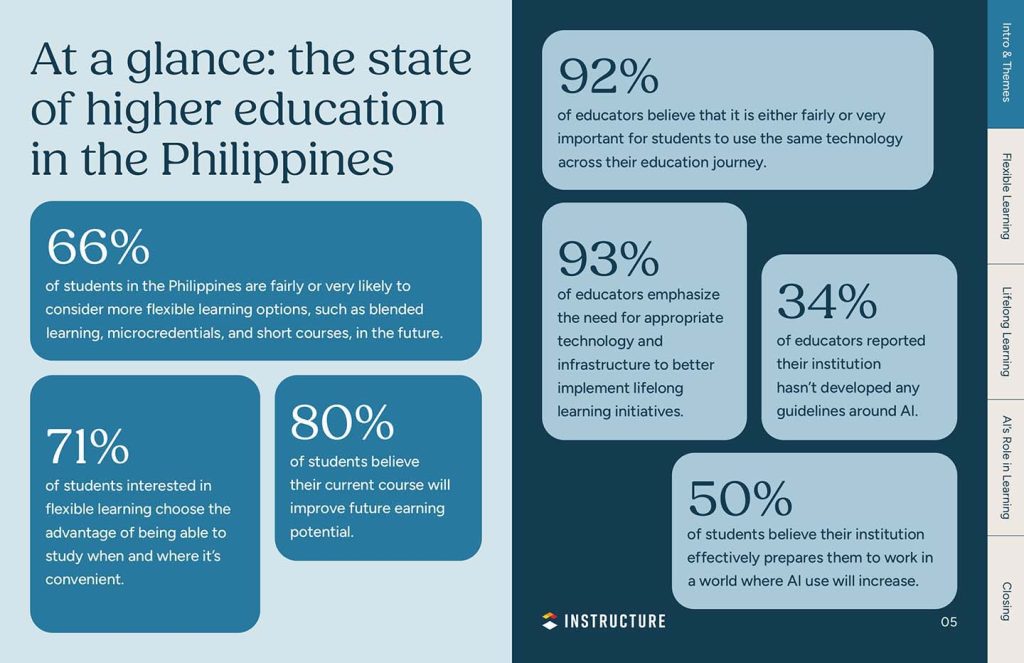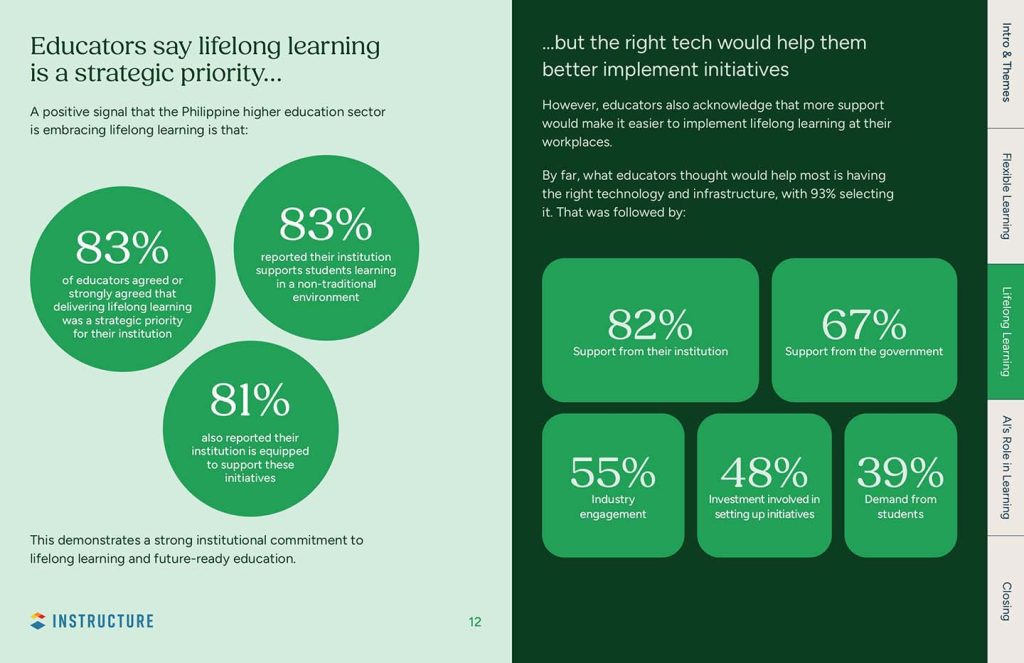MANILA, PHILIPPINES – The call for lifelong learning in the Philippines has never been louder. As industries rapidly evolve and digital transformation continues to reshape the workforce, educators and institutions are recognizing the urgent need to keep up. According to the 2025 State of Higher Education — Philippines report, 83% of educators consider lifelong learning a strategic priority, signaling a nationwide shift towards continuous education.
But while the commitment is strong, the challenge lies in execution. The report, conducted by Times Higher Education and Instructure, revealed that 93% of surveyed educators believe enhanced support coupled with the right technology and infrastructure will be critical in making lifelong learning initiatives more accessible and impactful.

Instructure, the global learning ecosystem behind Canvas, collaborated with Times Higher Education to survey 107 higher education educators and 312 students. Some of the country’s top institutions, including De La Salle University, University of Santo Tomas, and Ateneo de Manila University, have already embraced technology-driven learning solutions to bridge educational gaps and enhance student experiences.
“The growing focus on lifelong learning is a direct response to the fast pace of change in both the job market and technology. This shift is crucial in ensuring students are equipped with the necessary skills to thrive throughout their careers,” said Harrison Kelly, Managing Director for APAC at Instructure. “We are seeing a demand for adaptable learning paths that align with the needs of working professionals, and educational institutions must evolve to meet these demands.”
With 83% of institutions now supporting non-traditional learning environments, hybrid models blending online and face-to-face education are on the rise. The study found that while 66% of students still favor in-person classes, nearly half (42%) are leaning towards hybrid setups, highlighting a demand for flexibility.
However, for these models to succeed, investment in digital infrastructure is essential. The report emphasized that resilient and accessible technology is key to ensuring that education continues uninterrupted.
Artificial intelligence (AI) is also playing a transformative role in education. The report found that 71% of educators are using AI to generate learning materials, 65% are incorporating it into quizzes and assignments, and 56% are leveraging it to personalize learning experiences. Students, too, are embracing AI: 81% believe it helps them save time, whether through text generation (63%), translation (58%), writing enhancement (62%), or concept clarification (55%).

“As the focus on developing a skills-first culture, supported by a lifelong learning approach and ethical use of AI in education, continues to grow, we can expect Philippine institutions to adopt more flexible, technology-driven approaches that meet the evolving needs of both educators and students, turning learning into opportunities at any stage of their lives,” Kelly said.
Beyond institutional efforts, policymakers are stepping up to ensure Filipinos have access to continuous education. Senator Joel Villanueva recently championed Senate Bill No. 2960, or the Lifelong Learning Development Framework Act. The proposed legislation aims to foster a culture of continuous learning by establishing Learning Cities and Learning Municipalities, empowering local governments to create tailored educational programs.
The bill also advocates for enhanced micro-credentialing initiatives and a strengthened Philippine Credit Transfer System (PCTS) to ensure that all forms of learning—whether formal or informal—are recognized and valued.
To learn more and access the full report here.










